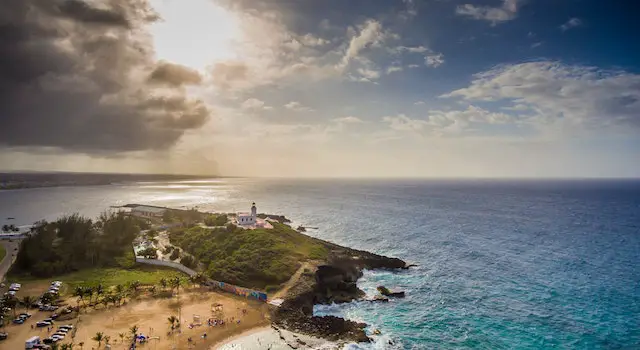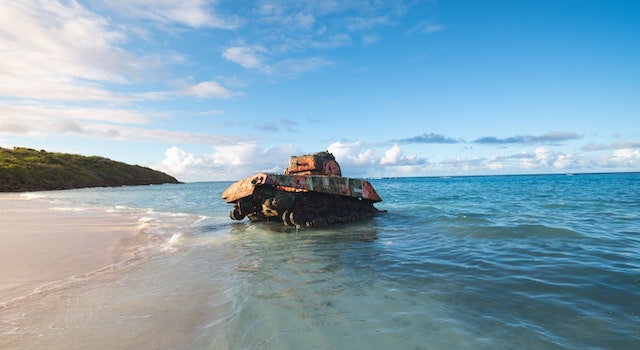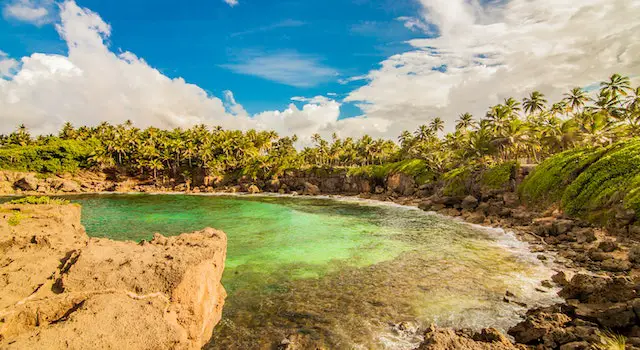Are Puerto Ricans Caribbean? Is Puerto Rico Part Of The United States?
The 3.2 million people who call Puerto Rico home are Americans because it is a U.S. territory. Puerto Ricans living on islands in the United States are subject to U.S. federal laws, but they are not represented in Congress or eligible to vote in presidential elections. It is neither a state nor a separate nation because it is a U.S. territory.
Is Puerto Rico A Part Of The United States?
Puerto Rico has the political status of a U.S. territory that is not incorporated. As a result, Puerto Rico is neither a state of the United States nor a sovereign nation.
Historical Background
Puerto Rico became a territory of the United States as a result of the Spanish-American War in 1898. In the Treaty of Paris, Spain surrendered Puerto Rico, along with Guam and the Philippines, in exchange for the United States. Since then, Puerto Rico has had its own distinct political identity while being under the control of the United States.
Legal Framework
Puerto Rico’s legal status is governed by the Puerto Rico Federal Relations Act of 1950, more commonly referred to as the “Foraker Act.” The act created Puerto Rico as an unincorporated territory of the United States. Since it is an unincorporated territory, Puerto Rico is subject to certain provisions of the U.S. Constitution but is not fully integrated into the United States.
U.S. Citizenship
A key element of Puerto Rican relations in the United States is its citizenship status. In 1917, the U.S. Congress passed the Jones-Shafroth Act, granting U.S. citizenship to everyone who lives in Puerto Rico. The result is that all Puerto Ricans become U.S. citizens, but they don’t have the right to participate in presidential elections unless they are able to establish an address in one of the fifty states.
Political Autonomy
Although Puerto Rico is subject to U.S. sovereignty, it has its own internal political system. It is home to its own legislature, governor, and judicial system, permitting Puerto Rico to govern itself to a large extent. However, some of the decisions made by Puerto Rico’s government can be overruled by the U.S. federal government.
Economic Relations
Puerto Rico is part of the U.S. customs territory, which means that it enjoys tariff-free trade with the United States. It is nevertheless crucial to know that Puerto Rico is not treated as an entity under federal taxation. This can have implications for taxation and economic development in the territory.
Representation in Congress
One area in which Puerto Rico differs from the states is its representation within the U.S. Congress. Although Puerto Rico does not have any voting representatives in the Senate, it has a non-voting representation within the House of Representatives. The representative is allowed to introduce legislation, take part in committee work, and participate in debates but is not able to make a vote on the House floor.
Are Puerto Ricans Considered Caribbean Americans?
Because Puerto Ricans are frequently regarded as a Caribbean nation with a distinct national identity on a global scale, the U.N. Special Committee frequently refers to Puerto Rico as a nation in its reports.
Geographical Localization
Puerto Rico, an island that is located within the Caribbean Sea, is undeniably part of the Caribbean region. Geographically, it has the same environment, culture, and historical ties that it has with the different Caribbean nations. In this way, it’s appropriate to view Puerto Rico as part of the larger Caribbean community.
Culture Identity
The identity of Puerto Ricans is deeply rooted in and influenced by both Caribbean and American influences. Puerto Rico has a rich mix of cultures, which includes elements that are derived from the ancestral Taino population, Spanish colonization, African heritage, and contributions from different types of migration. This cultural mix illustrates the richness of the Caribbean, which makes Puerto Ricans a vital part of the wider Caribbean American community.
Politics
Ties between Puerto Rico and the United States contribute to the perception that Puerto Ricans are Caribbean Americans. Puerto Rico is a U.S. territory, and its inhabitants can be U.S. citizens. This unique arrangement in the political system allows Puerto Ricans to have the right to access American institutions as well as rights and benefits. It is crucial to remember that the status of Puerto Rico’s political system doesn’t change its geographical position within the Caribbean region.
Social and Economic Interactions
Puerto Rico maintains significant interactions on a social and economic level with other Caribbean nations. Tourism, trade, and cultural exchanges between Puerto Rico and neighboring Caribbean countries are common occurrences. The Caribbean identity is usually celebrated through music, festivals, and culinary expressions that further highlight the cultural and historical connection between Puerto Ricans a andtheir Caribbean counterparts.
Regional Cooperation and Alliances
Within the Caribbean region, there are several regional alliances and regional organizations in which Puerto Rico is a participant. For instance, the Caribbean Community (CARICOM), an organization that aims to improve cooperation and integration between Caribbean nations, has accepted Puerto Rico as an associate member. This recognition is an acknowledgment that Puerto Rico has Caribbean membership and participates in regional issues.
Are Puerto Rico Citizens Of The United States?
Because Puerto Rico is not a sovereign country, it does not have a separate citizenship from that of the United States. Legislative acts declared the majority of Puerto Rican residents and natives to be U.S. citizens between 1899 and 1952.
Granting of U.S. citizenship
In 1917, the U.S. Congress passed the Jones-Shafroth Act, which granted U.S. citizenship to all residents of Puerto Rico. The act acknowledged that Puerto Ricans were American citizens and provided the citizens with certain rights and security. Since they are U.S. citizens, Puerto Ricans are able to move freely across Puerto Rico and the mainland United States, and they have the right to live and work anywhere in the United States.
U.S. Passport and Voting Rights
In the United States, as U.S. citizens, Puerto Ricans can obtain U.S. passports, which allow them to travel internationally under the U.S. flag. But it is important to keep in mind that residents of Puerto Rico who reside in Puerto Rico cannot vote in presidential elections since Puerto Rico is not a state. Residents of Puerto Rico who are able to establish residence within one state, however, are able to participate in elections at the federal level.
Representation in Congress
Representatives in Congress Puerto Rico does not have an elected representative in the Senate. However, it has an elected representative who is non-voting within the House of Representatives. The representative can propose legislation, attend committee hearings, and participate in debates. However, they are not able to participate in debates on the House floor. The absence of full-vote representatives within Congress is one thing that separates Puerto Ricans from those of all 50 states.
Limitations on the Political Autonomy of Puerto Rico
Although people from Puerto Rico are U.S. citizens, Puerto Rico is not a state but rather an independent territory within the United States. This implies the fact that Puerto Rico has limited autonomy and is subject to specific conditions in the U.S. Constitution. In addition, the U.S. federal government has the power to block the decisions of Puerto Rican government officials. Puerto Rican government, leading to a tangled relationship between Puerto Rico and the United States.
Statehood advocacy
Discussions are ongoing, and movements advocate for Puerto Rico to become the 51st state in the United States. The argument of supporters is that statehood would provide Puerto Ricans with the right to full and equal citizenship as well as voting rights in Congress. Statehood is an issue of debate in the political realm and requires approval from Congress.
FAQ’s
Are Puerto Ricans considered Caribbean people?
Yes, Puerto Ricans are indeed considered Caribbean people. Puerto Rico is an island located in the northeastern Caribbean Sea, making its inhabitants part of the broader Caribbean cultural and geographic region.
Is Puerto Rico a Caribbean island?
Yes, Puerto Rico is an island in the Caribbean region. It is situated to the east of the Dominican Republic and west of the Virgin Islands in the northeastern Caribbean Sea.
Is Puerto Rico an independent country or a territory of the United States?
Puerto Rico is not an independent country; it is an unincorporated territory of the United States. It operates under a local government but falls under the sovereignty of the United States.
Is Puerto Rico part of the United States?
Yes, Puerto Rico is a part of the United States. It is a U.S. territory, which means it is subject to the authority of the U.S. federal government and its residents are U.S. citizens.
Do Puerto Ricans have U.S. citizenship?
Yes, Puerto Ricans are U.S. citizens. Since 1917, they have been granted U.S. citizenship, allowing them to travel freely to and from the mainland United States.
What is the political status of Puerto Rico within the United States?
Puerto Rico has a unique political status within the United States. It is an unincorporated territory, which means it is subject to some, but not all, provisions of the U.S. Constitution. Puerto Ricans have their own local government and elect a governor, but decisions on matters such as defense and foreign affairs are handled by the U.S. federal government. The island has had discussions and referendums on its political status, including options like statehood, independence, or an enhanced Commonwealth status.
Are Puerto Ricans Caribbean? Is Puerto Rico Part Of The United States?
The 3.2 million people who call Puerto Rico home are Americans because it is a U.S. territory. Puerto Ricans living on islands in the United States are subject to U.S. federal laws, but they are not represented in Congress or eligible to vote in presidential elections. It is neither a state nor a separate nation because it is a U.S. territory.
Is Puerto Rico A Part Of The United States?
Puerto Rico has the political status of a U.S. territory that is not incorporated. As a result, Puerto Rico is neither a state of the United States nor a sovereign nation.
Historical Background
Puerto Rico became a territory of the United States as a result of the Spanish-American War in 1898. In the Treaty of Paris, Spain surrendered Puerto Rico, along with Guam and the Philippines, in exchange for the United States. Since then, Puerto Rico has had its own distinct political identity while being under the control of the United States.
Legal Framework
Puerto Rico’s legal status is governed by the Puerto Rico Federal Relations Act of 1950, more commonly referred to as the “Foraker Act.” The act created Puerto Rico as an unincorporated territory of the United States. Since it is an unincorporated territory, Puerto Rico is subject to certain provisions of the U.S. Constitution but is not fully integrated into the United States.
U.S. Citizenship
A key element of Puerto Rican relations in the United States is its citizenship status. In 1917, the U.S. Congress passed the Jones-Shafroth Act, granting U.S. citizenship to everyone who lives in Puerto Rico. The result is that all Puerto Ricans become U.S. citizens, but they don’t have the right to participate in presidential elections unless they are able to establish an address in one of the fifty states.
Political Autonomy
Although Puerto Rico is subject to U.S. sovereignty, it has its own internal political system. It is home to its own legislature, governor, and judicial system, permitting Puerto Rico to govern itself to a large extent. However, some of the decisions made by Puerto Rico’s government can be overruled by the U.S. federal government.
Economic Relations
Puerto Rico is part of the U.S. customs territory, which means that it enjoys tariff-free trade with the United States. It is nevertheless crucial to know that Puerto Rico is not treated as an entity under federal taxation. This can have implications for taxation and economic development in the territory.
Representation in Congress
One area in which Puerto Rico differs from the states is its representation within the U.S. Congress. Although Puerto Rico does not have any voting representatives in the Senate, it has a non-voting representation within the House of Representatives. The representative is allowed to introduce legislation, take part in committee work, and participate in debates but is not able to make a vote on the House floor.
Are Puerto Ricans Considered Caribbean Americans?
Because Puerto Ricans are frequently regarded as a Caribbean nation with a distinct national identity on a global scale, the U.N. Special Committee frequently refers to Puerto Rico as a nation in its reports.
Geographical Localization
Puerto Rico, an island that is located within the Caribbean Sea, is undeniably part of the Caribbean region. Geographically, it has the same environment, culture, and historical ties that it has with the different Caribbean nations. In this way, it’s appropriate to view Puerto Rico as part of the larger Caribbean community.
Culture Identity
The identity of Puerto Ricans is deeply rooted in and influenced by both Caribbean and American influences. Puerto Rico has a rich mix of cultures, which includes elements that are derived from the ancestral Taino population, Spanish colonization, African heritage, and contributions from different types of migration. This cultural mix illustrates the richness of the Caribbean, which makes Puerto Ricans a vital part of the wider Caribbean American community.
Politics
Ties between Puerto Rico and the United States contribute to the perception that Puerto Ricans are Caribbean Americans. Puerto Rico is a U.S. territory, and its inhabitants can be U.S. citizens. This unique arrangement in the political system allows Puerto Ricans to have the right to access American institutions as well as rights and benefits. It is crucial to remember that the status of Puerto Rico’s political system doesn’t change its geographical position within the Caribbean region.
Social and Economic Interactions
Puerto Rico maintains significant interactions on a social and economic level with other Caribbean nations. Tourism, trade, and cultural exchanges between Puerto Rico and neighboring Caribbean countries are common occurrences. The Caribbean identity is usually celebrated through music, festivals, and culinary expressions that further highlight the cultural and historical connection between Puerto Ricans a andtheir Caribbean counterparts.
Regional Cooperation and Alliances
Within the Caribbean region, there are several regional alliances and regional organizations in which Puerto Rico is a participant. For instance, the Caribbean Community (CARICOM), an organization that aims to improve cooperation and integration between Caribbean nations, has accepted Puerto Rico as an associate member. This recognition is an acknowledgment that Puerto Rico has Caribbean membership and participates in regional issues.
Are Puerto Rico Citizens Of The United States?
Because Puerto Rico is not a sovereign country, it does not have a separate citizenship from that of the United States. Legislative acts declared the majority of Puerto Rican residents and natives to be U.S. citizens between 1899 and 1952.
Granting of U.S. citizenship
In 1917, the U.S. Congress passed the Jones-Shafroth Act, which granted U.S. citizenship to all residents of Puerto Rico. The act acknowledged that Puerto Ricans were American citizens and provided the citizens with certain rights and security. Since they are U.S. citizens, Puerto Ricans are able to move freely across Puerto Rico and the mainland United States, and they have the right to live and work anywhere in the United States.
U.S. Passport and Voting Rights
In the United States, as U.S. citizens, Puerto Ricans can obtain U.S. passports, which allow them to travel internationally under the U.S. flag. But it is important to keep in mind that residents of Puerto Rico who reside in Puerto Rico cannot vote in presidential elections since Puerto Rico is not a state. Residents of Puerto Rico who are able to establish residence within one state, however, are able to participate in elections at the federal level.
Representation in Congress
Representatives in Congress Puerto Rico does not have an elected representative in the Senate. However, it has an elected representative who is non-voting within the House of Representatives. The representative can propose legislation, attend committee hearings, and participate in debates. However, they are not able to participate in debates on the House floor. The absence of full-vote representatives within Congress is one thing that separates Puerto Ricans from those of all 50 states.
Limitations on the Political Autonomy of Puerto Rico
Although people from Puerto Rico are U.S. citizens, Puerto Rico is not a state but rather an independent territory within the United States. This implies the fact that Puerto Rico has limited autonomy and is subject to specific conditions in the U.S. Constitution. In addition, the U.S. federal government has the power to block the decisions of Puerto Rican government officials. Puerto Rican government, leading to a tangled relationship between Puerto Rico and the United States.
Statehood advocacy
Discussions are ongoing, and movements advocate for Puerto Rico to become the 51st state in the United States. The argument of supporters is that statehood would provide Puerto Ricans with the right to full and equal citizenship as well as voting rights in Congress. Statehood is an issue of debate in the political realm and requires approval from Congress.
FAQ’s
Are Puerto Ricans considered Caribbean people?
Yes, Puerto Ricans are indeed considered Caribbean people. Puerto Rico is an island located in the northeastern Caribbean Sea, making its inhabitants part of the broader Caribbean cultural and geographic region.
Is Puerto Rico a Caribbean island?
Yes, Puerto Rico is an island in the Caribbean region. It is situated to the east of the Dominican Republic and west of the Virgin Islands in the northeastern Caribbean Sea.
Is Puerto Rico an independent country or a territory of the United States?
Puerto Rico is not an independent country; it is an unincorporated territory of the United States. It operates under a local government but falls under the sovereignty of the United States.
Is Puerto Rico part of the United States?
Yes, Puerto Rico is a part of the United States. It is a U.S. territory, which means it is subject to the authority of the U.S. federal government and its residents are U.S. citizens.
Do Puerto Ricans have U.S. citizenship?
Yes, Puerto Ricans are U.S. citizens. Since 1917, they have been granted U.S. citizenship, allowing them to travel freely to and from the mainland United States.
What is the political status of Puerto Rico within the United States?
Puerto Rico has a unique political status within the United States. It is an unincorporated territory, which means it is subject to some, but not all, provisions of the U.S. Constitution. Puerto Ricans have their own local government and elect a governor, but decisions on matters such as defense and foreign affairs are handled by the U.S. federal government. The island has had discussions and referendums on its political status, including options like statehood, independence, or an enhanced Commonwealth status.




